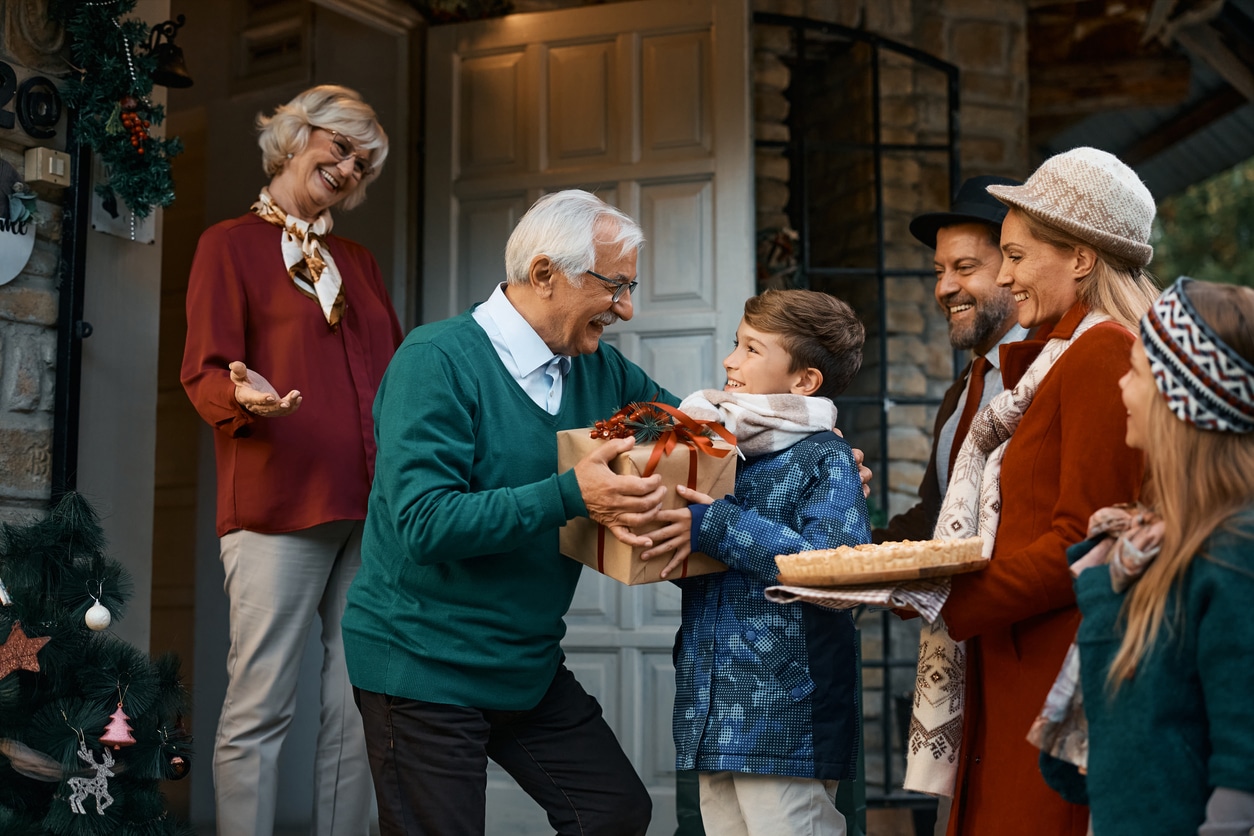Visiting during the holidays is a big part of the magic and when a senior is on your visit list, it’s also a great opportunity to check on their safety and well-being to ensure they are able to live and thrive at home. Although many seniors may not realize it, over time their abilities to keep up with daily tasks can become more difficult, jeopardizing their health and safety. So, when visiting during the holidays here are some red flags to keep in mind.
Visiting During the Holidays Checklist
How clean is the home?
One of the first things seniors may need to do less of is cleaning around the home. Washing floors, vacuuming, doing laundry, and keeping the kitchen in order may become too much for them to manage. When visiting during the holidays look around for signs that cleaning is no longer a priority and that may need help going forward. For example, is the kitchen sink full of uncleaned dishes? Are the bathrooms clean and sanitary? Is the trash can overflowing? All of these are signs that a normally tidy senior may not be as capable as they once were and that more help is needed.
Is clutter a problem?
A home that is cluttered is another sign to look for when visiting during the holidays. Piles of newspapers or magazines on the floor, furniture that impedes mobility, stairways stacked with items heading up or down, and rugs scattered around are all well-known risks to senior safety at home. With senior falls being one of the leading reasons for injuries and deaths, clutter can make life at home not only challenging but dangerous. For many seniors, it’s just hard to throw things away even when they have no use or value. If clutter is a problem, check out our blog “Healthy Senior Living: Fall Prevention and Response Strategies” for tips and ways to help.
Is personal hygiene slipping?
Health and good personal hygiene go hand-in-hand so when visiting during the holidays if you notice a loved one hasn’t bathed, isn’t brushing their teeth or is wearing dirty clothes it’s a flag that there is a deeper problem. Seniors who do not have a walk-in shower may simply be afraid to tackle the tub or maybe they have arthritis that makes simple tasks like brushing their teeth difficult or even painful. Keeping up with laundry is another potential problem especially when seniors must carry loads up and down stairs making it risky and for some impossible. But poor personal hygiene may also signal mental health problems like those described in the seniorhealth365.com article, “Poor Personal Hygiene in the Elderly.”
Are there problems with memory?
For those who visit often, memory problems may not be readily apparent, but when visiting during the holidays after time away, memory loss is often much easier to spot. First of all, did your loved one recognize you instantly or did it take a few seconds or even a reminder? When conversing do they seem engaged and do they actively participate or do they only react when pressed? Are they themselves or do they seem removed from the present situation or even sad or confused? All may be signs that memory is fading and while a little forgetfulness is normal, memory loss such as with dementia is not and should be addressed by a physician. Learn more about memory loss in our blog, “The Cognitive Changes in Older Adults You Should Watch For.”
Are there signs of injury?
Bruising in seniors is not uncommon because of their thinner skin and weaker blood vessels. A bump that might not even leave a mark on a younger person may cause a bruise that seems out of line with the actual injury. That said, however, bruising can also be a sign that a senior has fallen, they are struggling with balance, or has other problems such as vitamin deficiencies, medications, or substance abuse. When visiting during the holidays also look for cuts, burns or abrasions that could be the result of a fall or other preventable injuries, such as from meal preparation or other daily tasks that have become too difficult to perform safely. For a rundown of what to look for, the seniorlifestylemag.com article, “Top 10 Most Common Injuries In Seniors,” can help.
When visiting during the holidays take extra care to listen and ask questions that may reveal that it’s time to consider a move to a senior living community like Ganton’s Countryside, where care and compassion are part of everyday life. For more information about Countryside, please call Margaret Nagel at (517) 206-5000 or download our brochure to learn about our care levels, cost, and amenities.


